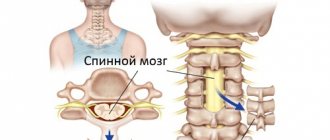Astheno-neurotic syndrome refers to neurotic diseases and occurs due to exhaustion of the nervous system.
A distinctive feature of this disease is a feeling of extreme fatigue from everything and increased nervous excitability with a hint of irritability.
This illness is often confused with ordinary depression, vegetative-vascular dystonia or chronic fatigue. People with a mobile psyche who take events to heart and react emotionally to life circumstances are prone to this disease.
People with endocrine, infectious and cardiovascular diseases are also susceptible to asthenia.
Asthenia can affect any person, regardless of age and social adaptation.
Symptoms of the syndrome
Let's study the symptoms that characterize astheno-neurotic syndrome:
- excessive emotionality;
- sudden mood swings;
- lack of self-control;
- restlessness;
- impatience;
- intolerance;
- disturbed sleep;
- intolerance to strong odors, loud sounds, bright lighting;
- tearfulness, moodiness;
- constant irritation;
- headaches and dizziness;
- poor digestion.
Patients are prone to worry, exaggerating the situation, and exaggerating the significance of events.
During attacks of the disease, rapid heartbeat (tachycardia) and dizziness begin. Quite often, an attack of asthenia is accompanied by stabbing pain in the heart and lack of air.
However, in accordance with the type of nervous system, the manifestation of the syndrome can be either extreme excitability or inhibition.
In this case, an inadequate reaction to the event occurs, a kind of “stupor”, and a lack of control over the situation.
A common manifestation is hypochondria. The patient begins to invent non-existent diseases that he suffers from.
Such a person can go to doctors for months and complain about a non-existent illness. But suggestibility itself can lead to a real illness invented by such a “sick”!
Against the background of constant nervous abnormalities, disruptions in the functioning of the gastrointestinal tract .
Patients may develop indigestion, suffer from heartburn, and belch after eating. When examining the gastrointestinal tract, the doctor, as a rule, does not detect any abnormalities.
Characteristic
Children have a fragile body, as well as a weak nervous system, for this reason it is important to protect them from overwork. Considering the fact that modern children have to study a lot and keep up with everything, chronic fatigue can often occur. Parents may notice that the child begins to get tired faster, remembers information worse, and his performance has also decreased.
At the same time, it is in childhood that the cause of asthenia can be added, such as frequent infectious diseases that a minor will begin to suffer from.
The baby’s immunity will begin to constantly decrease, and because of this, his overall health will deteriorate. This happens because the child experiences significant nervous tension and also suffers from high anxiety. That is why parents should take care not only of the child’s emotional well-being, but also of their physical health.
If a child experiences an asthenic state, then he will feel weak, depressed and overwhelmed. Persistent apathy may arise, due to which he will show indifference to the world around him. Often there are difficulties with falling asleep, the sleep-wake pattern is significantly disrupted, which only makes the situation worse. If a minor cannot get enough sleep, then this significantly affects his health.
Most often, asthenia is diagnosed in children of primary school age. This can be explained by the fact that the daily schedule and activities change significantly, and the workload in the educational institution increases significantly. They begin to demand more from the child, but he has never encountered anything like this before. As a result, he may experience significant nervous tension.
When attending school, a child must not only limit his movements during class, but also activate mental activity to memorize the material. Moreover, the break is too short to allow for proper rest. Moreover, you have to do tasks at home, which is why you also cannot restore your strength.
Some children manage to cope with such stress. Others may experience asthenic syndrome, in which both emotional and physical exhaustion are observed. The baby develops anxiety, significant depression is observed, and muscle tone deteriorates. You may notice that cellular nutrition becomes worse, while the patient becomes weaker and begins to atrophy.
Stages of the disease
Depending on the manifestation of the symptoms of the disease, the nature of the course of asthenia can be divided into three stages:
- increased excitability;
- sleep disturbance;
- depression.
These three stages of development of the disease do not occur without a reason, but are a consequence of a violation of the neurotic structures of the body.
The first stage is not perceived as a disease, but is considered a character trait. A tendency to tantrums and sudden mood swings is considered a character flaw or bad manners. Such uncontrollability of behavior is no longer a disadvantage, but a symptom of asthenia!
At the second stage, psychopathological processes are aggravated and astheno-neurotic syndrome is already pronounced. Fatigue occurs on its own, without physical or mental stress.
I am haunted by a feeling of “being overwhelmed”, I don’t want to work, my appetite decreases, my sleep is disturbed, and causeless headaches appear. Against the backdrop of this whole picture of the disease, immunity decreases, which provokes frequent colds. A sore throat may go away and then appear again!
The third stage is characterized by a decrease in vital interests, sometimes by an unwillingness to live.
Lethargy, apathy, desire for solitude, avoidance of vigorous activity, development of phobias and panic moods are characteristic signs of deep damage to neurotic structures. At this stage, a person falls into a state of prolonged depression, does not make contact, and avoids a wide circle of contacts.
At the physical level, a pathological change in the musculoskeletal system in one form or another has been noticed (teeth may deteriorate, for example).
What symptoms of a concussion in a child should parents know in order to promptly identify signs of injury in their children. A disruption in the functioning of the central system can cause such a terrible disease as external hydrocephalus. You can study treatment methods in our article.
Symptoms of AS in infants
If a newborn does not have organic brain damage or any other serious underlying causes, doctors consider infant asthenia as a hereditary factor. One of the most obvious symptoms of asthenic syndrome in infants is sleep disturbances. A child may cry for hours and have great difficulty falling asleep. Long periods of lying down, rocking in arms or in a stroller only aggravate the situation. In such cases, you just need to put the baby in bed and leave the room.
The rest of the symptoms are as follows:
- During feeding, the child takes a few sips and refuses to eat. One gets the impression that he does not even have the strength to take a pacifier and make swallowing movements. At the same time, he does not fall asleep, but cries and moans.
- Despite the correct dosed feeding (or even with overfeeding), he does not gain weight.
- The umbilical cord is bleeding.
- Spontaneous twitching and movements of the limbs occur.
- Mucus accumulates in the mouth, which the child does not even spit out by coughing.
- Suffering from regular constipation. The child is so weak that he does not even have the strength to pass feces.
- Jaundiced complexion.
- The general condition systematically worsens from the second half of the day until 20-00, as well as towards midnight.
- The child cries for a long time and for no reason.
- Reacts fearfully to any sounds.
It is unacceptable to relieve the symptoms of asthenia in infancy with medications. Therefore, all that can be used as therapeutic therapy at this stage is gymnastics in water, massage of all muscle groups and a well-organized daily routine.
Causes of the disease
The reasons why astheno-neurotic syndrome occurs:
- high load on the nervous system: stress, mental strain;
- disruption of brain metabolic processes;
- head injuries;
- poisoning and intoxication with alcohol, drugs or nicotine;
- inflammation of the cerebral cortex;
- CNS diseases;
- chronic kidney and liver diseases;
- thyroid diseases;
- lack of vitamins;
- heredity.
Among the various causes of asthenia, the social factor stands out. Mental and mental stress associated with failures of social adaptation and everyday troubles easily provokes disorders of an asthenic nature.
especially true for people with a very flexible psyche .
The desire to move up the career ladder can lead to damage to neurotic structures if a person deprives himself of sleep and rest.
And if increased psychogenic stress is accompanied by chronic kidney disease or hormonal disorders, then it will not be possible to avoid the acute form of asthenia.
Astheno-neurotic syndrome in children
The causes of astheno-neurotic syndrome in children are:
- suffered hypoxia at birth;
- birth injuries;
- bacterial and viral infections complicated by neurotoxicosis;
- underdevelopment of the central nervous system;
- malnutrition.
Symptoms of the disease are expressed in hysterics, causeless crying, and constant whims. The appearance of asthenic disorders in childhood and adolescence is caused by an immature nervous system and inferior neurotic structures.
Viral diseases that occur with convulsions, disorders of consciousness and other manifestations of neurotoxicosis can also cause anamnesis.
Also, the appearance of asthenic disorder can be influenced by the place of residence. For example, in the Arctic, the constant lack of solar insolation negatively affects the development of the child’s body and psyche.
Risk factors
The etiology of astheno-neurotic syndrome (ANS) exists both from birth and can be acquired during life.
With a congenital disease, it may manifest itself up to three or four years of age. Neurologists point out that temperament plays an important role in the development and overcoming of the disease. These include: choleric, sanguine, phlegmatic, melancholic. Those with a melancholic temperament are most prone to a disorder of this nature.
Another fact is the genetic predisposition to the development of ANS in children. There is a high probability that neurotic psychosis occurred in the lives of the patient’s parents at some point in their lives.
In this case, the child should be observed by a neurologist; some treatment or adjustment of the condition may be required, and the rehabilitation period may take a longer time.
Acquired ANS can appear as a result of previous injuries to the cervical vertebrae with constant excitement, anxiety and after sufficient stress.
Whatever the illness, children will definitely need psychological help. In addition to them, parents also need consultations so that they can correctly develop the ability to communicate with their child and develop proper relationships.
For a doctor, in establishing a prognosis for a patient, the degree of disorder of nervous functions plays an important role. With an uncomplicated disease, the prognosis will generally be favorable.
Typically, children are prescribed rehabilitation measures in periodic courses, alternating them every few months. And the beneficial effect of the treatment method and prognosis strongly depend on how the parents feel about the baby’s condition and their psychological stability.
Treatment of astheno-neurotic syndrome
How to treat astheno-neurotic syndrome and what methods exist for this?
I distinguish three methods:
- medicinal;
- psychological;
- regime.
The main role in healing asthenic syndrome is played by an established daily routine and a nutritious diet.
Regular walks in the fresh air, affordable physical exercise, adequate rest and healthy sleep will help you get rid of suffering faster.
If these conditions are not met, the treatment process may be delayed or may not produce any effect at all, even when taking medications.
Drug treatment of astheno-neurotic syndrome involves taking antidepressants, sedatives, mild nervous system stimulants and tranquilizers.
Also prescribed are drugs that regulate metabolic processes in the structures of the brain, increase blood circulation in the brain and various adaptogens (schisandra, ginseng).
Depending on the severity of the disease, the doctor prescribes a specific medicine. At the initial stage of the disease, healing is possible with the help of vitamin complexes and medicinal teas with valerian.
In more advanced forms of asthenia, sedatives and tranquilizers are prescribed:
- afobazole;
- adaptol;
- PC sedative;
- other medicines.
If the disease has deeply affected the nervous system, strong antidepressants . This group of drugs is prescribed in extremely advanced cases. In some cases, treatment occurs with the help of physiotherapeutic procedures - electrosleep, darsonvalization, etc.
Psychological and routine treatment involves the patient’s individual work on himself. It is necessary to understand the work and rest schedule, establish adequate sleep, and eliminate the abuse of pathogens (coffee, cigarettes, chocolate, alcohol).
It is also necessary to eliminate conflict situations in your life, at least to move away from them as much as possible.
There are also methods of traditional herbal treatment. After consulting a doctor, you can take a course of herbal therapy. Especially at the first stage of the disease, herbal therapy gives amazing results.
Diet
Review your diet ! It is necessary to exclude foods that provoke aggressiveness and stimulate excessive expressions of emotions.
You may need to give up red meat. But a decision to exclude foods from the diet must be made after consultation with a nutritionist.
How to get rid of the problem?
Treatment of astheno-vegetative syndrome begins with determining the diagnosis, for which you should consult a doctor, therapist or neurologist, or for children, a pediatrician.
In the first stages, the doctor recommends non-drug adjustments: daily routine, diet, moderate physical and mental stress, as well as sleep patterns.
The need to exclude stimulating and irritating foods, for example, those containing caffeine, spicy and salty foods, fast food, etc. Indications for the use of soothing teas, relaxing baths, and relaxation massage courses.
If the disease is protracted, symptomatic therapy is prescribed: therapeutic manual therapy, mineral baths, electropheresis, halochamber, drugs to improve brain activity, vascular agents.
Any intervention using drug therapy must be carried out by a qualified specialist.
Asthenovegetative syndrome with severe manifestations requires medical intervention. When depressive conditions develop, antidepressants and sedatives are used.
To correct and treat the disease - neuroleptics, nootropic, neurometabolite drugs, neuroleptic stimulants can be used. In order to prevent self-medication of severe forms, you should consult a general practitioner and a neurologist.
Consequences
Astheno-neurotic syndrome can have the most negative consequences.
A person can be plagued by panic attacks, which have a wide variety of colors - from an attack of “everything is lost” to a panicky fear of death.
The attacks are temporary and begin and end unexpectedly. At this time, tachycardia, a state of mental agitation or lethargy is observed.
Among the physical manifestations during an attack are possible upset stools and excessive urination.
Read more about panic attacks in our articles.
Disease prevention
In the event of the appearance of asthenic disorders caused by psychogenic stress and social factors, it is necessary to take preventive measures that will minimize the risk of resumption or appearance of asthenia.
These include:
- change of place of work;
- change of environment;
- complete rest;
- quality sleep at a certain time;
- accessible physical exercise;
- relaxing massage;
- swimming;
- reflexology;
- meditative techniques.
What else can you do?
In the modern social environment, stress and physical strain cannot be avoided. But it is necessary to strive to reduce the influence of psychogenic stress on the body. If you are overextended at work, change it.
If you have a conflicting relationship with your boss, find a new job. If you strive to achieve career heights, engage in auto-training or oriental techniques (wu-shu, kung fu, qigong).
Set aside special time for sports, swimming, fitness, yoga. Take time for walks in nature. Get a pet - spending time with pets relieves stress!
Aquarium fish are simply a wonderful way to calm down. A domestic cat of the Russian breed purrs mesmerizingly. A little playful lap dog - and the stress is relieved!
Don't go into deep depression over the loss of a loved one. Life is fleeting!
Many people find it helpful to attend church and attend services. Make it a rule to attend church services on Sundays and holidays. The Church heals the soul, which means that the nerves will be in order.
Do some handicrafts and various crafts. Find yourself a hobby and devote part of your time to your favorite activity.
Finally love yourself. Your happiness should not depend on the whims of fate and other people. Be healthy!
Drug treatment
If the neurologist considers it necessary to prescribe medications to the child, therapy includes:
- For active brain activity - nootropics: Nootropil, Aminalon.
- Calming agents for relieving irritability - valerian, motherwort, Novo-Passit.
- In especially severe cases - antidepressants and tranquilizers.
- For acute manifestations of psychosis - antipsychotics.
- To strengthen the whole body - multivitamin complexes.
- To increase energy reserves and overall activity, adaptogens are needed: Chinese lemongrass, ginseng root.
Dietary recommendations
The set of products for a child with asthenic syndrome is selected especially carefully. Proteins, minerals, vitamins and amino acids are always indispensable for the body, and even more so for asthenia. Amino acids that contain:
- seafood, fish, beef, poultry meat and liver;
- dairy and fermented milk products;
- chicken eggs;
- cereals, buckwheat, rice;
- sesame and pumpkin seeds, soy, peanuts and almonds;
- fresh spinach and parsley;
- avocado, bananas, beets.
Sources of tryptophan maintain stability in the production of serotonin and are responsible for a good mood - bananas, hard cheeses, turkey meat, whole grain bread.
Maintain glucose balance:
Monitor your child's nutrition
- raspberries, cherries, watermelon, grapes;
- pumpkin, potatoes, carrots and white cabbage;
- cereals and grain crops.
The general tone is increased by fortified and herbal teas, drinks from golden root, Chinese lemongrass, ginseng root and rose radiola.
Please note that this can clearly be harmful and interfere with the healing process:
- Drinks, foods and medications with caffeine. Completely replace traditional tea and coffee with fruit, vegetable juices and herbal teas.
- Low-fat food.
- Pickles, jam and any canned food.
- Industrial sweets, fast food, carbonated water, unnatural packaged juices.
ATTENTION! When eliminating the problem of asthenia, do not forget about other pathologies, if they have been diagnosed. And when compiling a diet from recommended products, first eliminate their potential harm.










